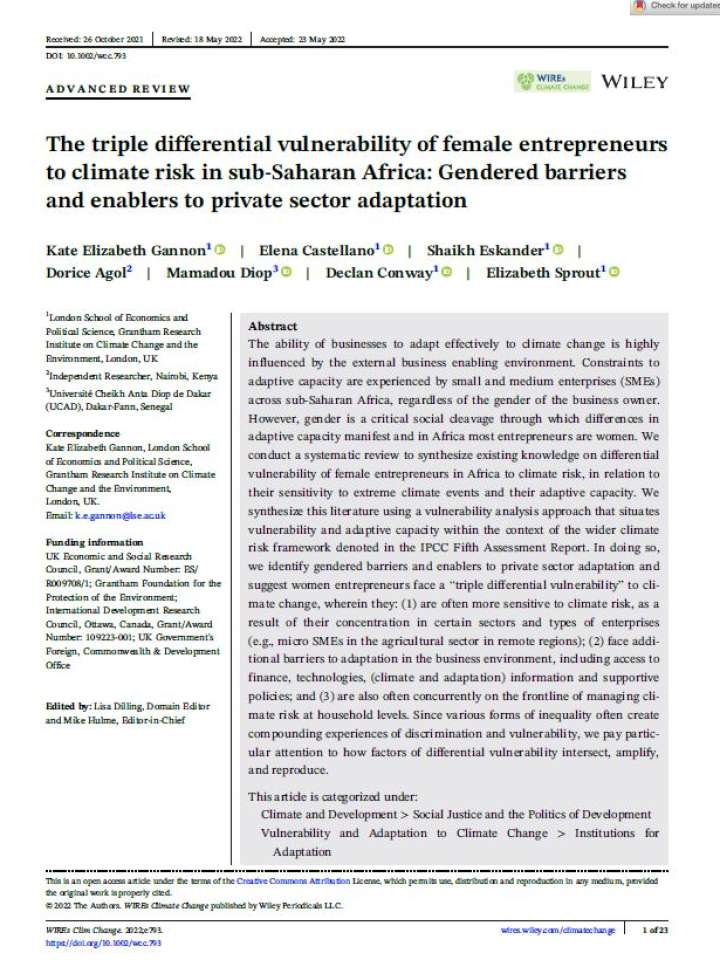The triple differential vulnerability of female entrepreneurs to climate risk in sub-Saharan Africa: Gendered barriers and enablers to private sector adaptation
In this paper the authors conduct a systematic review to synthesize existing knowledge on differential vulnerability of female entrepreneurs in Africa to climate risk, in relation to their sensitivity to extreme climate events and their adaptive capacity. The ability of businesses to adapt effectively to climate change is highly influenced by the external business enabling environment. Constraints to adaptive capacity are experienced by small and medium enterprises (SMEs) across sub-Saharan Africa, regardless of the gender of the business owner. However, gender is a critical social cleavage through which differences in adaptive capacity manifest and in Africa most entrepreneurs are women.
The authors synthesize this literature using a vulnerability analysis approach that situates vulnerability and adaptive capacity within the context of the wider climate risk framework denoted in the IPCC Fifth Assessment Report. In doing so, the researchers identify gendered barriers and enablers to private sector adaptation and suggest women entrepreneurs face a “triple differential vulnerability” to climate change, wherein they: (1) are often more sensitive to climate risk, as a result of their concentration in certain sectors and types of enterprises (e.g., micro SMEs in the agricultural sector in remote regions); (2) face additional barriers to adaptation in the business environment, including access to finance, technologies, (climate and adaptation) information and supportive policies; and (3) are also often concurrently on the frontline of managing climate risk at household levels. Since various forms of inequality often create compounding experiences of discrimination and vulnerability, we pay particular attention to how factors of differential vulnerability intersect, amplify, and reproduce.
Explore further
